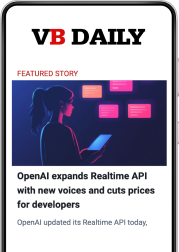The Chan Zuckerberg Initiative announced the launch of rBio, an artificial intelligence model designed to understand cellular biology through virtual simulations instead of expensive lab experiments. Detailed in a research paper on bioRxiv, the model uses a novel “soft verification” approach, allowing researchers to test hypotheses computationally before committing to costly lab work. Ana-Maria Istrate, a senior research scientist at CZI, explained the paradigm aims to shift the majority of biological work to computational models. This aligns with CZI’s goal to address all diseases by the century’s end, focusing on the intersection of AI and biology.
The new model tackles challenges in applying AI to biology, bridging the gap between complex molecular data and user-friendly interfaces. By leveraging CZI’s TranscriptFormer model, rBio provides a conversational AI system for researchers to use easily. Its core innovation allows AI to think probabilistically rather than in absolutes, providing scientifically grounded responses to complex biological inquiries.
rBio has demonstrated competitive performance against benchmarks using virtual simulations, illustrating its potential to replace traditional lab data in certain contexts. CZI’s commitment to open source provides access to these tools, enabling wider use and potentially transforming drug discovery processes.
As CZI transitions from social justice initiatives to a focus on scientific research, rBio exemplifies this shift. The model’s development is supported by CZI’s rigorous data curation, aiming to reduce bias and ensure diverse representation in AI training.
With implications for drug discovery and beyond, rBio could significantly shorten the timeline from research to development, offering new pathways for understanding diseases. CZI’s open-source approach is set to democratize access and accelerate scientific innovation globally, potentially reshaping the pharmaceutical industry.

